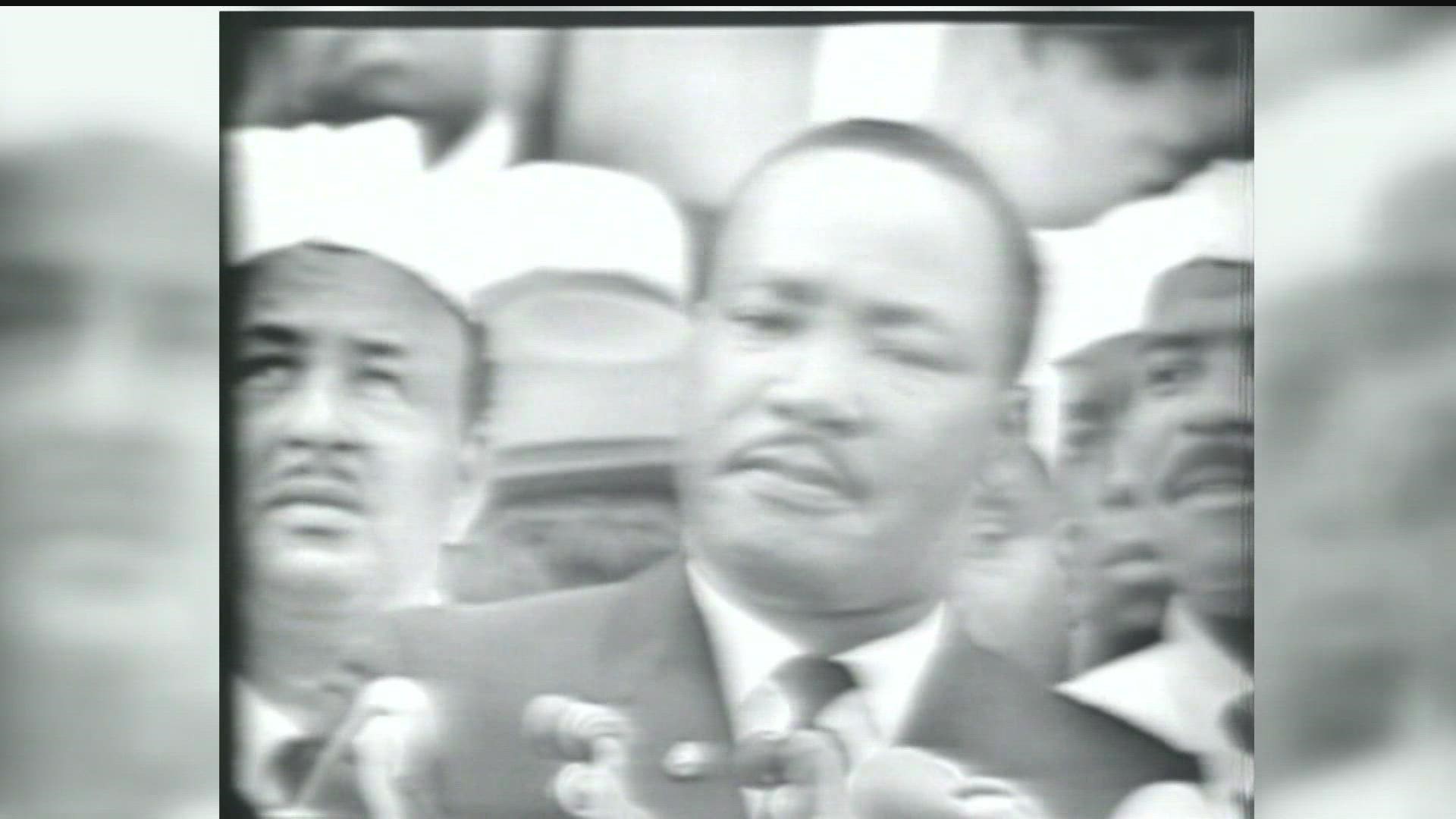ST PAUL, Minn. — Minnesota's official observance of Martin Luther King Jr. Day focused on erasing the economic disparities that fall along racial lines.
Three words -- "Building Black Wealth" -- were splashed across the stage at the Ordway Center for Performing Arts as well as the front page of the event programs. Many of those who spoke pointed to the fact that Dr. King, in the final years of his life, had begun to connect the dots between the civil rights struggle and battle for economic justice in America.
Minnesota's stubborn homeownership disparities are a major contributor to the income gap because owning property is the most common way that wealth passes from generation to generation within families.
"We must be thoughtful, intentional and held accountable for truly creating Black generational wealth," Gov. Tim Walz said as he pointed to the words highlighted on the back of the Ordway stage.
He said that's why his budget blueprint will leverage the record $17 billion budget surplus to improve the lives of families, especially children. He said budgets are moral documents because they reflect the priorities of elected leaders.
"You know how they always tell you, 'It’s not always about the money.' That might be true, but sometimes it’s all the damned money. It is all about the money!"
St. Paul Mayor Melvin Carter touted progress the city has taken to address the wealth gap, including the city's new Inheritance Fund program. It would provide forgivable down payment loans to residents of the city's Rondo neighborhood, or their descendants.
Rondo is a historically Black part of the Capital City that was split in two by the construction of Interstate 94, causing economic harm that reverberated for generations. Recent efforts to revive the area include planning for a land bridge to reconnect the two severed halves.
Keynote speaker Anna Gifty Opoku-Agyeman said the key to economic equality is to target investments at those who are facing the worst disparities.
"Black woman best — it is simply the idea that the best outcome for Black women and girls is a better outcome for everyone else," Opoku-Agyeman told the crowd in the Ordway.
"Why? Because, alongside Native American women, as well as Latino women, we are worse off on nearly every single economic measure."
Opoku-Agyeman is a 26-year-old Harvard doctoral student who immigrated to the US as a child with her family from Ghana. She is an activist on the economic equity front who founded the Sadie Collective, a nonprofit organization geared toward helping Black women enter the fields of economics, public policy and data science.
The Minnesota Legislature is currently considering the First-Generation Down Payment Assistance Act, a help people whose parents and grandparents never owned a home buy one.
Dr. King was known as a fearless leader on the civil rights front, but Sen. Tina Smith reminded the audience of his work leading the "Poor People's Campaign" and bringing media attention to labor disputes. In fact, he was assassinated while in Memphis speaking out on behalf of striking sanitation workers.
"It is easy to forget that at the time of his assassination, Dr. King had been increasingly seen by white people as a dangerous and revolutionary person because of his growing focus on economic, as well as social, justice."
Attorney General Keith Ellison spoke of how government policies contributed directly to disparities in homeownership. The Federal Housing Administration, or FHA, wouldn't back up home loans in neighborhoods that were predominantly Black, which help create a system of redlining in Minnesota and elsewhere.
"The FHA needs to say it was sorry for discriminating against Black people in getting home mortgages and then make up for it," Ellison remarked.
Lt. Gov. Peggy Flanagan talked about how her 10-year-old daughter questioned the lyrics to the Star-Spangled Banner on the way home from a Vikings game. She asked why to song talked of the "land of the free" considering the country had slavery and Indigenous persons were displaced by European settlers.
"I sat her down on the couch and I said, 'My girl, America is an idea. And it is always improving. We are always improving, always fighting for justice."
Watch more Minnesota politics:
Watch the latest political coverage from the Land of 10,000 Lakes in our YouTube playlist:

